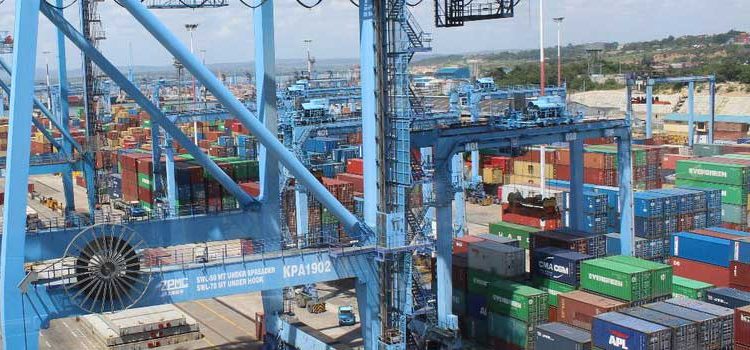Lack of inclusion of the mother Ministry of Health (MoH) as part of the Mombasa Port and Northern Corridor Community Charter (MPNCCC) has come into sharp focus as its role in issuing the mandatory Covid 19 free certificate becomes crucial.
The health issues related to logistics are represented by the Port Health which is a department in the ministry and is the current signatory of the Charter. However, it is the mother ministry that has been put in a central position in coordinating the mandatory tests the truck drivers are supposed to undergo 48 hours before loading cargo, after they emerged as cross border super spreaders.
Also all sensitive health related matters along the corridor are canvassed through the ministry in conjunction with other ministries and agencies. The ministry has also been involved in other cross border activities as the region seeks to carry out harmonized protocols to tackle the pandemic.
The primary objective of the Charter, launched in June 2014, and initially signed by 25 agencies, was to establish a permanent framework of collaboration, binding port community stakeholders together.
This second edition of the charter was revised in 2016, covering the period between 2019-24 and proclaims the desire of the Port and Northern Corridor community to realize the full trade facilitation potential of the Port and Northern Corridor by setting minimum performance indicators for individual signatories.
The MoH has been put on spotlight by industry players due to the challenges it has experienced in testing truck drivers for Covid 19, which has resulted in serious delays at the border crossing points. This it has experienced has been as a result of shortage of reagents that needed for testing that have been on global supply shortfall.
MPNCCC chairman, who is also the Chief Executive Officer (CEO) of Shippers Council of East Africa (SCEA) said that the MOH is now a critical player in the logistics industry.
“The charter was a commitment among the institution on performance indicators but the MOH was not part of the arrangement then as we did not have any need for them,” Langat said.
Of major concern is the period it takes to get the Covid 19 certificate due to capacity constraint, delaying for up to 10- 14 days and once the certificate is finally obtained it lapses in only 14 days.
“Delays in designated stoppage areas along the corridor and at border posts where the trucks wait for between 5-10 days invalidates the certificates by the time of crossing the border, a move that is made complex for Rwanda based cargo that has to move across two border points,” Langat added.
Due to these inefficiencies, the truck turnaround has increased significantly raising unit cost of transport, which is eventually passed to the shippers, according to Langat.
It was a culmination of extensive consultations with private and public sector stakeholders, including government agencies, the business community, civil society organizations and special interest groups, on the upgrading and improvement of logistics services through a revised Charter.
The Steering Committee for the Charter – comprises the Shippers Council of Eastern Africa, the Kenya Maritime Authority, the Kenya Ports Authority, the Kenya Revenue Authority, the Kenya Trade Network Agency, TradeMark East Africa, Kenya Ship Agents Association, and the Northern Corridor Transit and Transport Coordination Authority (NCTTCA).
“However, all stakeholders are obliged to pursue and encourage realization of the Northern Corridor’s full trade facilitation potential, as intended by the Charter,” says the charter in its preamble.
The revised Charter, which has 49 signatories bids players to specific actions, collective obligations, service delivery targets and timelines.
“With time, the authorities noted that while some targets were achieved, others appeared to have been overtaken by changes in infrastructure, systems and policies that impacted on operations and cargo clearance processes. Observers noted that the initial Charter omitted key stakeholders who needed to be part of the process,” the revised Charter says in its introductory remarks.





